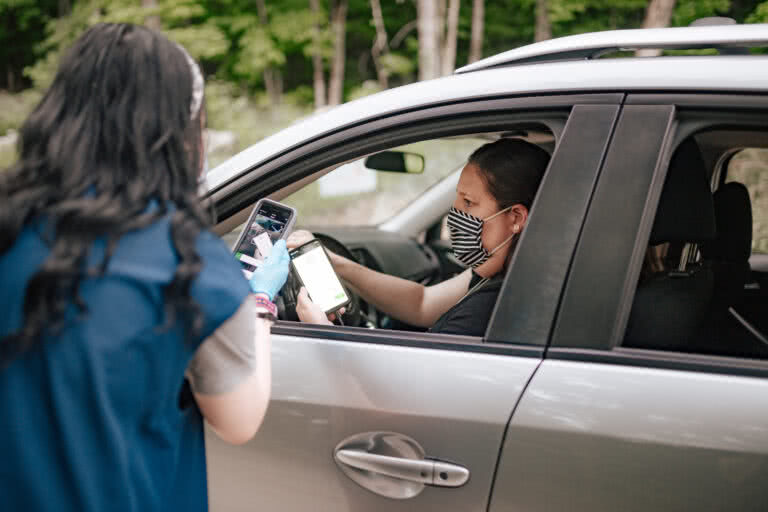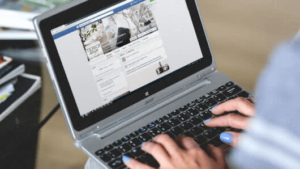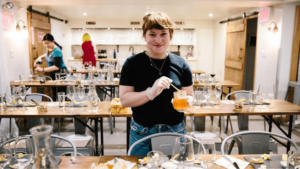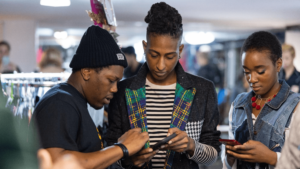Things may not be totally “normal” yet, but 18 months into the pandemic, we’re the closest to it we’ve been since COVID-19 first started dominating news cycles. Think about how far we’ve come: Back in March of 2020, fear and uncertainty swirling around the virus — and the painful awareness of how much we didn’t know — sent much of the country into lockdown after lockdown. Theaters went dark, pubs stopped pulling pints, and even hugging a friend felt rife with danger.
But now, even with COVID still a part of daily life, there’s much that we do know. That knowledge is helping to avoid another major lockdown and allowing people to live fuller lives while at the same time safeguarding their health and the health of others.
Perhaps most critically, we know that indoor events are inherently riskier when it comes to transmission of the virus. The way things are shaping up, the Great Indoors may very well be the final frontier of the COVID-19 pandemic.
What does this mean for event creators? Empowered by vaccine mandates across the country, many organizers now require proof of vaccination from attendees at the door. The reasoning is simple: Vaccines are incredibly effective in reducing rates of hospitalization and death caused by the virus, including the supercharged Delta variant. By limiting attendance to those who’ve been given the jab, event creators help to ensure that their gatherings won’t contribute to the virus’s spread.
But requiring vaccinations isn’t always as simple as waving a magic wand. Will guests be happy about the requirement? Will the policy encourage or discourage attendance? There are logistics to consider, too: How does one physically check a would-be attendee’s status? Are staff trained to spot fake cards? Then, there’s the question of the future: How will proof of vaccination play out in one month, in six months, or even a year?
Eventbrite has resources for navigating the evolving landscape surrounding vaccination requirements at events. To see how these requirements are playing out in the real world, we caught up with three Eventbrite creators from across the country. Here’s how they’re handling vaccination-only events — with great results.
Getting people on board
Carissa Hatchel, the front-of-house manager of Oasis, a nightclub and cabaret in San Francisco, California, was initially worried about the public’s reaction to the venue’s vaccine requirement. Oasis’s rule went into effect before San Francisco’s city-wide mandate, which since August 20 has required proof of vaccination for entry to all restaurants, bars, clubs, gyms, and large indoor events. Oasis accepts either a physical or digital card, and it also takes QR codes produced by the State of California’s Digital COVID-19 Vaccine Record. All attendees must be at least three weeks post their final shot to pass muster.
“I was nervous about people being upset,” Hatchel explained, adding that she had a vision of would-be attendees showing up at the door unaware of the policy. What if people reacted poorly, she feared? What if they were angry, or demanded a refund? Thankfully, the worrying so far has proved for naught.
“It turns out our audiences were hugely grateful for the policy, and were so proud to show off their vax cards!” Hatchel said. At least in Oasis’s case, when attendees are assured they’ll be entertained in a safe environment, it appears they’re more likely to attend. “Now that most of the city has followed suit, virtually everyone knows to carry their card around at all times.”
Checking vaccination status
The indie arts venue PianoFight, which has venues in San Francisco and Oakland, similarly requires audience members to flash their vaccination status at the door. Attendees must also mask up unless they’re eating or drinking and staff take an at-home COVID test before every shift they work. Rob Ready, the venue’s artistic director, was “pretty gung-ho” about enacting the new policy.
“It felt like the smartest way to keep our audience, artists, and staff safe,” he said, adding that the transition went super smoothly. “After we announced it, and then closed down again during the Delta variant surge, our audiences really appreciated how cautious we played it.”
To verify that vaccination cards are legit, Ready said staff match individuals’ personal IDs to vaccination cards or pictures of those cards. Fake cards are a concern, he said, but his staff hasn’t come across any yet. Ready is also a big fan of California’s Digital COVID-19 Vaccine Record. “You can trust it and it’s useful for folks who forgot their card.”
Space Ballroom, an independent music venue located in Hamden, Connecticut, uses the Bindle app to check vaccination statuses. The secure digital wallet has helped to streamline the process, said Premier Concerts and Manic Presents president Keith S. Mahler, who promotes events at Space Ballroom and elsewhere in the state.
“We did our homework in the marketplace,” Mahler said. “We like their outlook. We like their corporate philosophy. We like their fee structure. We like everything about it.”
On its website, Bindle states that it was “built to support speedy ingress and hands-free health checks.” The app requires users to legally affirm their vaccination and testing statuses under penalty of law. To help speed along the entry process and to encourage attendees to download the app, it suggests creating a Bindle holder line similar to an EZ Pass lane at a highway tollbooth, or a TSA PreCheck line at airport security.
“It’s just extremely easy to use,” Mahler said of the app. “We’re very, very happy with the decision [to use it].”
Best practices for the COVID-19 age
Only allowing vaccinated individuals vastly cuts down the chance of COVID-19 transmission at events, but it’s nonetheless important to have a game plan in the event of breakthrough infections. PianoFight relies on its online Eventbrite registrations for contact tracing, Ready said. “If someone reports testing positive, we can email everyone who bought a ticket to let them know,” he said. “We did that after our July soft opening.”
At Space Ballroom, the Bindle app offers a contact tracing function. Mahler is grateful that he hasn’t had to use it, though. “Connecticut’s numbers are falling, which is good news for all of us here,” he said. “We’ve not had any issues with any of our events.”
All of the event creators interviewed for this story say they plan on checking vaccination statutes for the indefinite future.
“If the last two years have taught me anything, it’s that anything we predict will definitely change,” said Hatchel. “It certainly will be long term.” With that in mind, she has some advice for those considering a similar policy.
“We can’t make exceptions, even for our biggest fans or most dedicated community members,” she said. “We have to stay clear and transparent about our expectations and rules, in order for people to know what they are getting into.”
PianoFight’s Ready agrees, adding that those on the fence about requiring vaccinations should take the plunge. “Just do it. You’ll feel safer. Your staff will feel safer,” he said. “And even if some members of your audience don’t like it, you can know that you’re making it safer for them to attend events.”
But perhaps most important is the message the policy sends to the unvaccinated. To those folks, Mahler has a simple message: “You should get vaccinated. Then we can all get back to work.”





